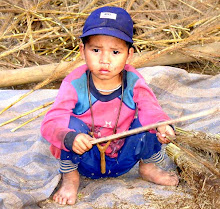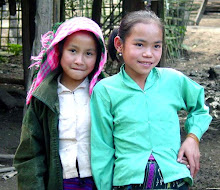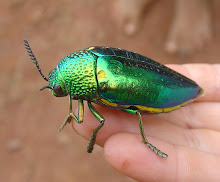Jesus said that if we make the tree good, it will produce fruit. He also said that if we abide in him, we will produce fruit. His command is not to produce fruit, but to abide in him. His promise is that, if we do, we will then produce fruit.
We are all on the field here with the hopes of producing fruit. We like to count the fruit we have produced and publish those numbers. We also like to count the number of trees we have planted out there trying to produce fruit and publish those numbers, too. But there is no fruit production where there are no healthy trees. Member care, to me, should be primarily about making sure that the trees are healthy.
What makes healthy trees? Water. Good soil. Protection from extreme temperatures. Fertilization and cultivation. Pruning. If healthy trees are the kind of workers we want, then they need to be meaningfully connected to God (and others) for his nourishment; they need to be protected from extreme crises; they need someone to give them specific things they need (fertilization) and to dig into their lives somewhat to let things sink in; they also need to be pruned by not being allowed to take on too much and allow other branches to cease bearing fruit because new growth is taking all the energy.
If trees in the garden are going to prosper, they need a gardener present. Of course, we can always say “God is present” but I think the gardener is not just God, but it is our member care people. Just like Jesus is the Chief Shepherd, he is also the Chief Gardener, but that does not preclude people from being pastors–human shepherds–or, in this case, human gardeners. Of course, a garden that is abandoned will not produce fruit as well as a garden that has a gardener that takes care of the garden very well. Conversely, if a gardener comes who doesn’t know what he’s doing, prunes too much, puts on too much fertilizer, and beats the trees instead of watering them, he can likewise kill the trees in the garden or hinder their fruit-production capabilities.
We need good gardeners who know what they are doing. I guess my point in this allegory is that member care doesn’t happen over e-mail and short visits to the field every 4-5 years. It doesn’t happen when the gardener spends his time working on the fence rather than on the trees. It doesn’t happen when a cow herder is sent to do the work of a gardener. It doesn’t happen when energy is spent planting more trees, or establishing more gardens in other areas, rather than on taking care of the ones already planted.
We need good gardeners who know what they are doing. I guess my point in this allegory is that member care doesn’t happen over e-mail and short visits to the field every 4-5 years. It doesn’t happen when the gardener spends his time working on the fence rather than on the trees. It doesn’t happen when a cow herder is sent to do the work of a gardener. It doesn’t happen when energy is spent planting more trees, or establishing more gardens in other areas, rather than on taking care of the ones already planted.
From my perspective, I think it would be a good idea for each field to have a member care worker who lives on the field rather than in the US. I think it would be a good idea for them to have learned the language and to have the deeper understanding of the culture that comes with language learning, and what it is like for a foreigner to live in that context long-term. I think it would be good for this person to spend months at a time helping and working alongside long-term workers in a limited way so that they can see what the workers are really like, beyond newsletters, e-mails, accountability reports and short-term visits.
I also think that member care people, while being informed on strategy and approaches, shouldn’t really focus on that aspect of the ministry, but should instead focus more on fostering spiritual health–the kind of abiding relationship with Christ that we need in order to produce fruit.
I have spent time planting fruit trees with local farmers. I have gone around and visited hundreds of fruit orchards. You can really tell the difference between those who plant a lot of  trees–more than they can manage–and those who plant a smaller amount and manage it well. The former increases his production by planting a maximum number of trees. But because he can’t give the proper attention to the mass number of trees, each tree looks bare, too tall and wide (not pruned), and otherwise unhealthy. The amount of fruit produced per tree is very low. The latter, on the other hand, prunes, fertilizes and in some cases irrigates his fruit trees. These trees are lush, green, full, not too big, and they produce a lot of fruit per tree. The former grower allows his fruit trees to grow among the weeds, against our regulations. But the latter grower cuts the weeds and vines down so that the fruit trees are healthy and produce the best-tasting fruit.
trees–more than they can manage–and those who plant a smaller amount and manage it well. The former increases his production by planting a maximum number of trees. But because he can’t give the proper attention to the mass number of trees, each tree looks bare, too tall and wide (not pruned), and otherwise unhealthy. The amount of fruit produced per tree is very low. The latter, on the other hand, prunes, fertilizes and in some cases irrigates his fruit trees. These trees are lush, green, full, not too big, and they produce a lot of fruit per tree. The former grower allows his fruit trees to grow among the weeds, against our regulations. But the latter grower cuts the weeds and vines down so that the fruit trees are healthy and produce the best-tasting fruit.
 trees–more than they can manage–and those who plant a smaller amount and manage it well. The former increases his production by planting a maximum number of trees. But because he can’t give the proper attention to the mass number of trees, each tree looks bare, too tall and wide (not pruned), and otherwise unhealthy. The amount of fruit produced per tree is very low. The latter, on the other hand, prunes, fertilizes and in some cases irrigates his fruit trees. These trees are lush, green, full, not too big, and they produce a lot of fruit per tree. The former grower allows his fruit trees to grow among the weeds, against our regulations. But the latter grower cuts the weeds and vines down so that the fruit trees are healthy and produce the best-tasting fruit.
trees–more than they can manage–and those who plant a smaller amount and manage it well. The former increases his production by planting a maximum number of trees. But because he can’t give the proper attention to the mass number of trees, each tree looks bare, too tall and wide (not pruned), and otherwise unhealthy. The amount of fruit produced per tree is very low. The latter, on the other hand, prunes, fertilizes and in some cases irrigates his fruit trees. These trees are lush, green, full, not too big, and they produce a lot of fruit per tree. The former grower allows his fruit trees to grow among the weeds, against our regulations. But the latter grower cuts the weeds and vines down so that the fruit trees are healthy and produce the best-tasting fruit. As someone on the outside who has tried to help these farmers, I can tell you that I would much rather have the latter type of grower. In fact, I think it is incumbent upon the fruit tree grower (or bee keeper, or goat herder for that matter) to do the best he can to provide for the health and success of the trees (or bees or goats, etc.) under his care.










No comments:
Post a Comment